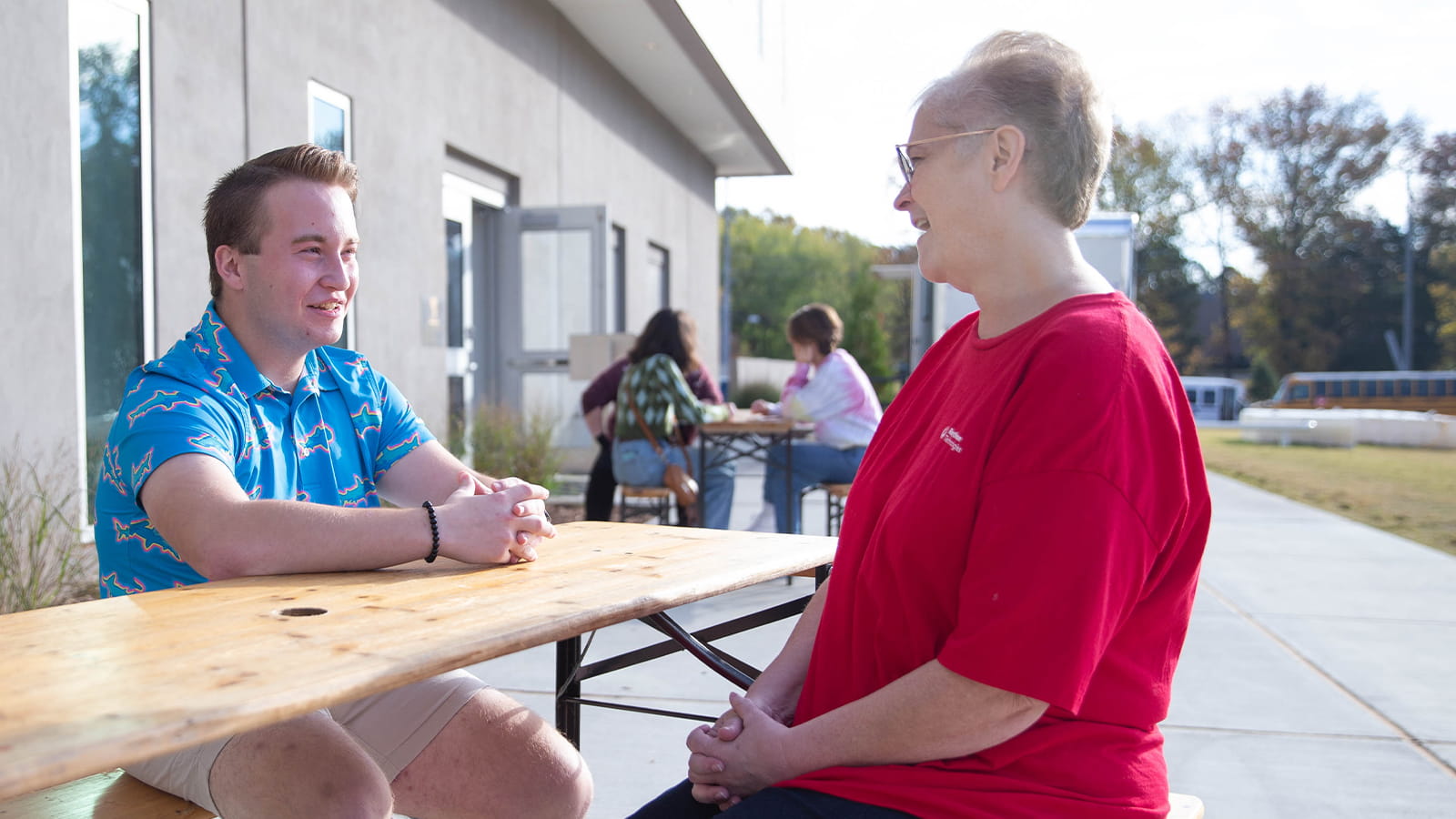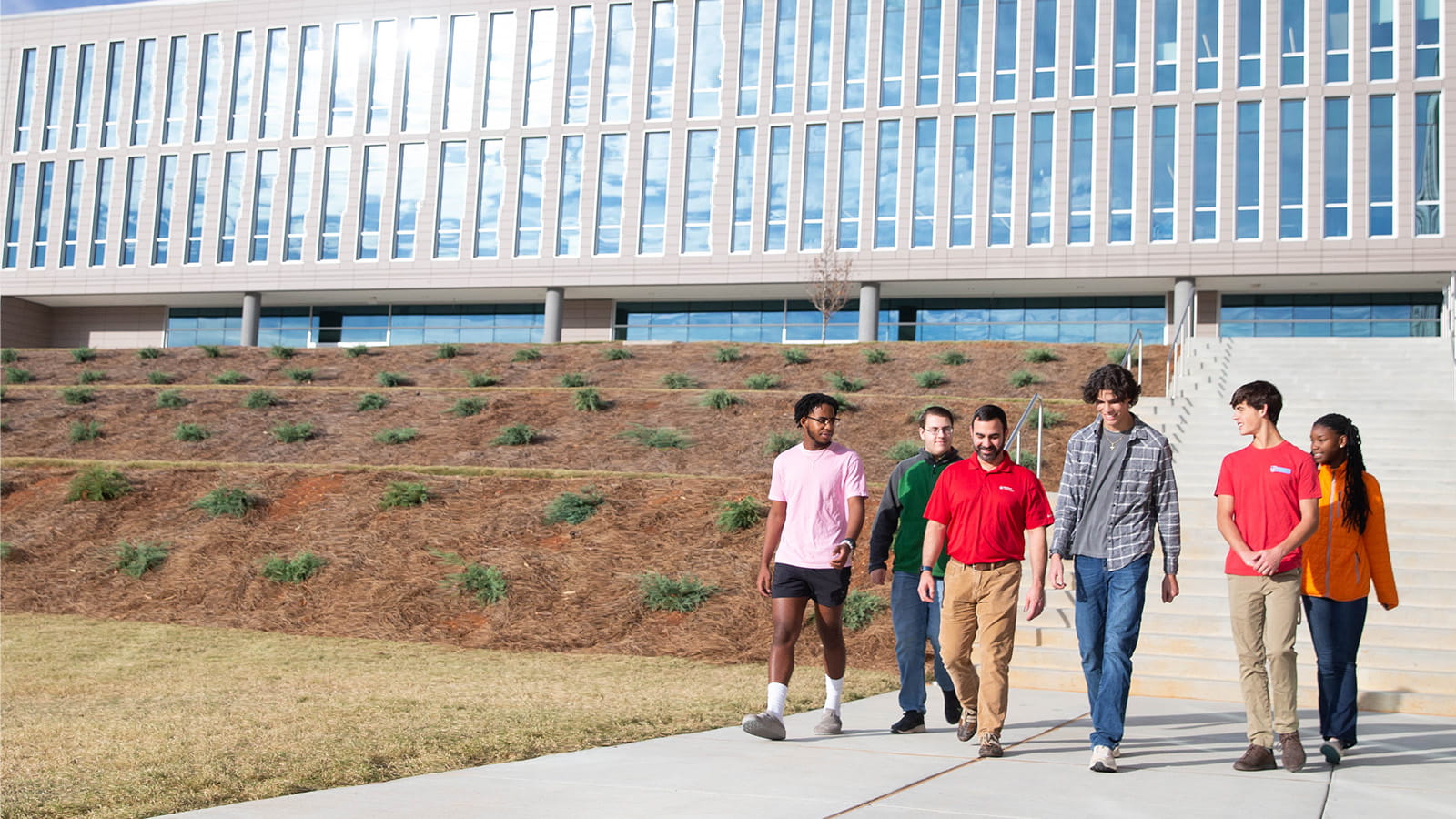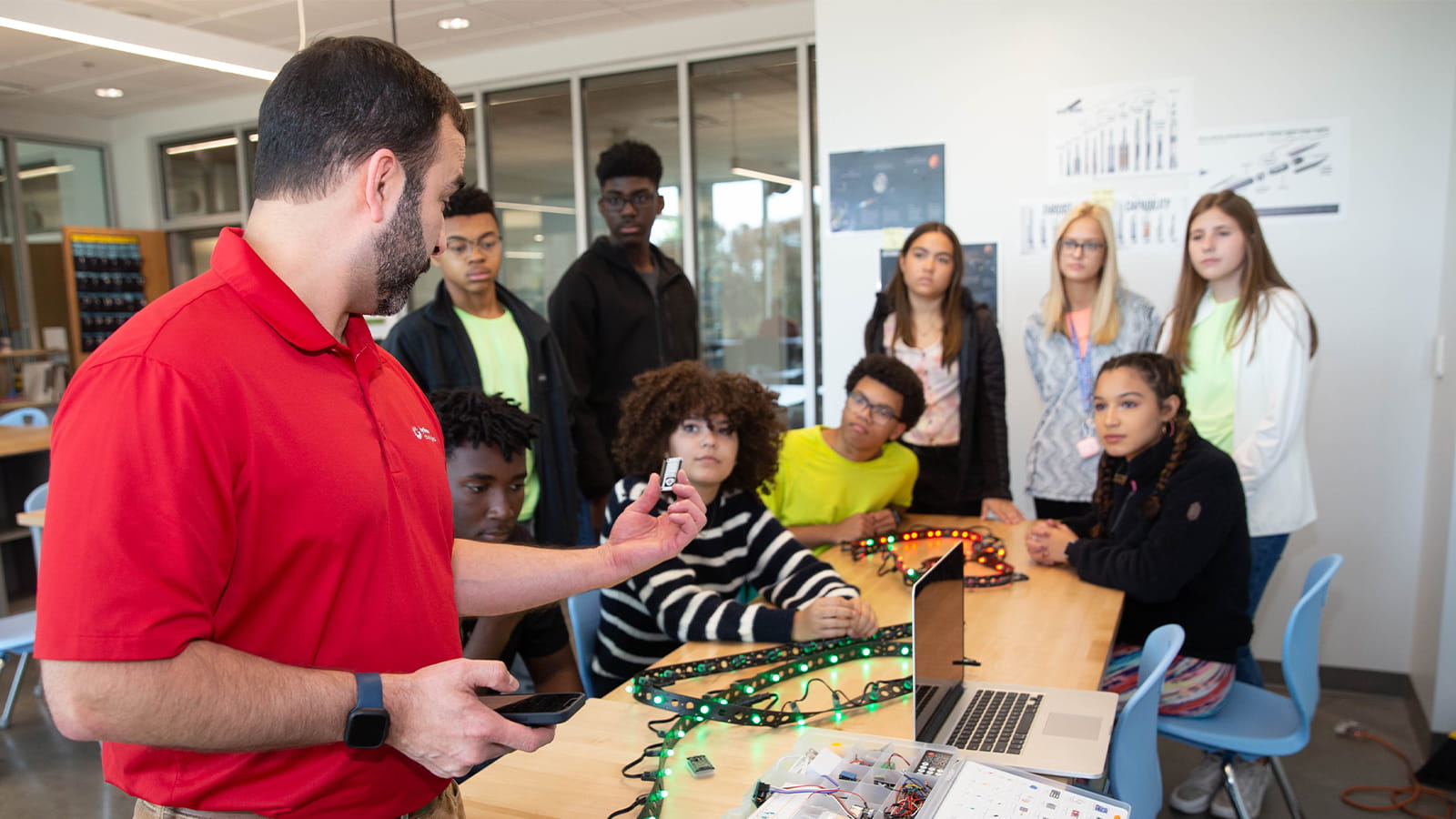a $4 million joint investment by Raytheon Intelligence & Space and Raytheon Missiles & Defense in the school’s new campus
Inside a STEM-centric high school
With an investment in the Alabama School of Cyber Technology and Engineering, Raytheon Technologies places a bet on the future
Brett Pagel’s goal was to teach high school students what microcontrollers do. On paper, that’s pretty dry material. So he leaned on the allure of multicolored LED bulbs.
Working in a classroom that felt a little like a tech company conference room, Pagel, a senior manager of cyber engineering at Raytheon Intelligence & Space, a Raytheon Technologies business, laid out strips of LEDs on a table. Then he made the bulbs blink, change color and chase one another.
His custom-built light show demonstrated how microcontrollers, or tiny computers built into other electronics, enable more complex functions – not just in lights but in a range of technologies from everyday consumer products to critical infrastructure.
The demo was part of Pagel’s presentation at the Alabama School of Cyber Technology and Engineering, a public high school in Huntsville that incorporates cyber technology and engineering across the academic disciplines. Raytheon Technologies is a major supporter of the school. The company has contributed $4 million to the construction of its new campus near the U.S. Space and Rocket Center, and employees such as Pagel regularly serve as guest speakers and mentors.
An investment in the future of STEM
Raytheon Technologies is a major supporter of the Alabama School of Cyber Technology and Engineering, a public commuter and residential high school in Huntsville that attracts students from across the state. The company’s support includes:
One-on-one help
Eileen Sterling knew there was something special about Sam Ware, a high school senior she is mentoring. Something that would make his résumé stand out. But she couldn’t quite pinpoint it – until, that is, he did it for her.
Sterling, a cybersecurity engineer at Raytheon Missiles & Defense, was having a one-on-one with Ware when he mentioned he’d been working with drones and using modeling and simulation programs in his spare time.
“And I thought: bingo,” Sterling said. “Those skills are, from a professional perspective, what I’d like to see in his résumé. He’s learning so much at ASCTE that are professional skills he can leverage.”
That’s the kind of breakthrough mentors strive for in their weekly sessions, where they review the students’ professional portfolios, revise their academic résumés to emphasize skills valued in technology fields, and help them grow their professional networks.
The “bingo” moment gave Ware a boost in confidence – “she’s really helped bring me out of my shell,” he said. For Sterling, it allowed her to give Ware something she never had at his age: professional guidance from someone in a STEM career.
“I didn’t have a mentor, and neither of my parents were college graduates. But I always had that dream of going to college and seeing the world,” she said. “I was driven toward college and my professional career because of what was in me, and I hear that same desire to grow technically and professionally in Sam. I’m just thrilled to help him.”

“She’s really helped bring me out of my shell.”
Sam Ware | Student | Alabama School of Cyber Technology and Engineering
A sense of belonging
Audrey King had enjoyed robotics and engineering in middle school, but when she got to high school, her motivation and interest faded. Then her mother saw an ad for the Alabama School of Cyber Technology and Engineering.
“At my old high school, I was not excited,” King said. “So, when my mom showed me a Facebook ad for ASCTE, and she told me, ‘They are your people,’ I wanted to grab the opportunity. Now that I’m here, I know these are the people I can relate to.”
Today, she’s studying alongside students with similar motivations and interests, she’s working to meet the school’s high expectations, and she’s asking lots of questions in class – a behavior that’s not just encouraged but expected.
“At my old school, I was always afraid to ask questions. But, here, I can do that. And I have all the resources that I need to succeed,” she said.
The environment is putting King in a good position to start her career, no matter which field she chooses.
“For all of us to come into this new environment, and learn about cyber tech and engineering, and have them tied into all of our courses – that’s great,” she said. “That will play a big part in what I know and how I work.”
A lasting impact
So how did Pagel’s light show go over with the students, anyway? The answer to that question lies on a piece of paper pinned to the note board in his office.
The email came from one of the school’s career coaches, and the reviews from the students were clear: “Engaging.” “Funny.” “Made everything understandable.” “My favorite presenter by far.”
“He kept me very entertained, and you could tell that he was passionate about his work,” one student wrote.
And that’s how Pagel knows his micro-lesson on microcontrollers worked.
“That’s very rewarding,” he said. “My goal with these presentations is to give an introduction into technical areas I enjoy.”
“Hopefully some students will feel the same,” he said, “going down a similar path to become the next cyber engineer or engineer who develops really cool things for me to play with when I’m old and retired.”

“My goal with these presentations is to give an introduction into technical areas I enjoy.”
Brett Pagel | Senior Manager, Cyber Engineering | Raytheon Intelligence & Space


